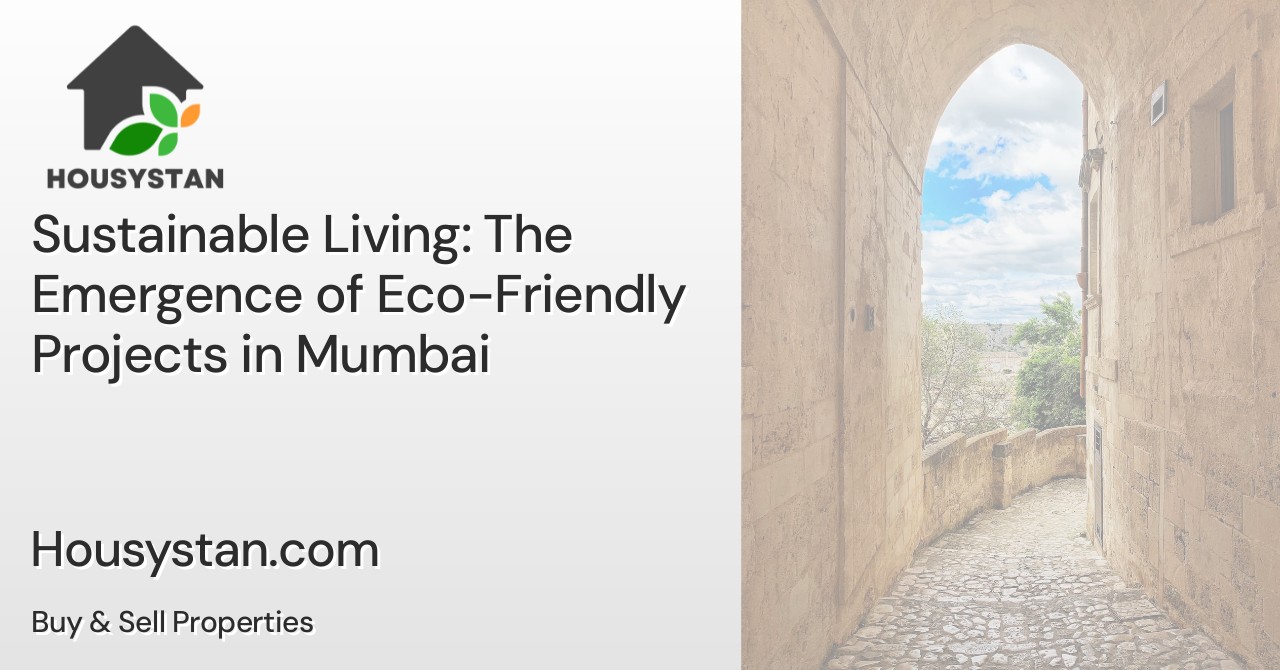Sustainable Living: The Emergence of Eco-Friendly Projects in Mumbai
Read latest blogs and articles from Housystan

The Information mentioned here was last updated on:
29/1/2026Sustainable living has become a significant trend in Mumbai, as eco-friendly projects gain momentum across the city. As India's financial capital, Mumbai faces unique challenges due to rapid urbanization, population growth, and increasing pollution. Residents and developers are now turning towards sustainable practices to create a greener and cleaner environment, positioning Mumbai as a pioneer in eco-conscious urban development.
One of the primary drivers behind this shift is the growing awareness of environmental issues and the need to adopt responsible lifestyles. Modern residential and commercial projects in Mumbai are integrating energy-efficient technologies, such as solar panels, rainwater harvesting systems, and waste management solutions. These innovative features help reduce carbon footprints, minimize resource wastage, and lower energy consumption, making daily life more environmentally friendly for Mumbaikars.
Additionally, the city’s real estate sector is embracing green building certifications like IGBC and LEED, which ensure that construction processes adhere to strict ecological standards. Many new developments incorporate green roofs, natural landscaping, and sustainable materials to promote biodiversity and enhance air quality. These eco-friendly initiatives not only benefit the environment but also offer healthier living spaces for Mumbai residents, providing access to cleaner air, natural light, and improved well-being.
- Verified Tenants/Buyers
- Unlimited Property Listing
- Zero subscription/charges fee
The government and local authorities in Mumbai are also playing a pivotal role by introducing policies and incentives that encourage developers to adopt sustainable practices. Community-driven movements and non-profit organizations are actively raising awareness about waste segregation, plastic reduction, and water conservation, further strengthening the city’s commitment to sustainability.
By choosing eco-conscious housing, investing in green commercial spaces, and supporting local sustainability initiatives, Mumbai’s citizens are contributing to a brighter, more sustainable future. The city’s emergence as a hub for eco-friendly projects demonstrates how urban centers can successfully balance growth with environmental responsibility. As more individuals and organizations embrace sustainable living, Mumbai sets an inspiring example for other metropolitan regions seeking to create a positive ecological impact.